|
April 30, 2011
|
Southeastern, New Hampshire
|
It would be easy to walk by this plant without noticing the flowers as they are
often hidden behind the leaves. It has bell-shaped pairs of yellow flowers, each pair
hanging down from a flower stem originating at the base of the leaf petiole (stem).
Leaves are opposite, ovate (wider at the base), have distinctly hairy but untoothed
margins and leave veins are pinnate and curve towards the rounded leaf tip. It
grows up to 3 feet in height and is found in wet woods, thickets, bogs in peaty
acidic soil. It was growing in woods along with Eastern White Pine
(Pinus strubus) and Eastern Hemlock (Tsuga canadensis).
It is similar to Mountain Fly Honeysuckle (Lonicera villosa) except that
the leaves on Mountain Fly Honeysuckle are sessile (no leaf stems/petioles) and
the flower stems (peduncles) are extremely short.
In June or July this plant produces pairs of red berries that I think are
inedible.
|
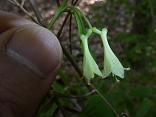
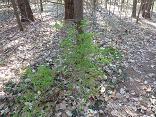
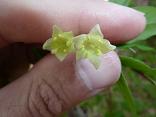
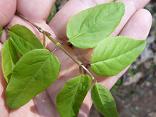
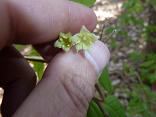
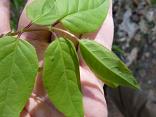
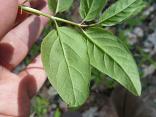
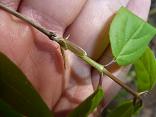
|







